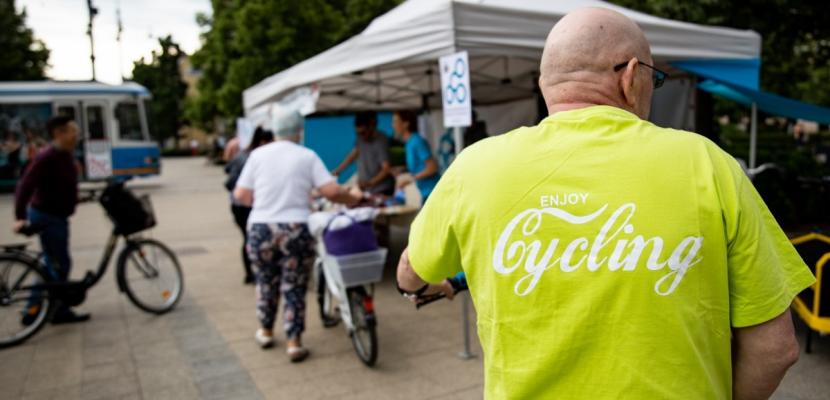
Bike Breakfast CSR in Debrecen

About this good practice
Conceived by the Hungarian Cycling Club (HCC) in 2009, this nationwide movement aims to dispel the main misconceptions about cycling and encourage more people to choose bikes for everyday transport. The long-term goal of the event is to reduce car-centric commuting. EDC took up the role of co-organizer of the event in Debrecen in 2022 with the unique idea of incorporating CSR features by encouraging the active promotion of cycling among local economic actors. Participating companies provide breakfast at their own expense for colleagues coming to work. EDC coordinates and links the civic initiative with the corporate line.
The event was originally held only in the city centre in Debrecen, the event now covers the whole city. There is an iincreasing number of autonomous open-to-public events as a joint effort of companies. Participants provide additional services (bike service, rest corners) and extra features (city tour by bike) as well. Companies taking part in this movement are more willing to join other initiatives, like Bike to Work campaign, a nationwide competition promoting sustainable commuting.
Key actors, stakeholders:
-Organizers: HCC, EDC
-Supporters: local bakers and coffee shops offering coffee and pastries, SMEs with cycling profile providing on-site event management and bike service, municipality (free use of public space)
-Participants: municipality, local companies (large enterprises and SMEs)
Beneficiaries: citizens; employees of participant organisations.
Expert opinion
Resources needed
Central event: sponsored by HCC (300 portions) and local bakeries, coffeeshops (Starbucks: 150 p., gluten-free bakery: 50 p.), local SMEs (bike repair service, event management)
EDC: breakfast, bike repair service, additional features (cca. 400 euro)
Participating companies: own budget
Evidence of success
After the pilot action in 2022, which was carried out with the participation of 15 companies, the event has become a demand among companies. In 2024 there were already 20 bike breakfast locations in the city. Even a committed core of companies started independently organising the bike breakfast, opening them up also to the public, enhancing the environmental and social benefits of the event. We consider this a much bigger success than the steady increase in the number of participating companies.
Potential for learning or transfer
This practice is easily transferable in terms of adaptability due to the following factors:
1.It can be implemented in practically any location regardless of the geographical, demographic and economic conditions.
2. Does not require significant resources, either financial, human or land use.
3. No special skills are needed to make it happen, the key is commitment and enthusiasm.
4. Benefits are easy to understand and communicate, facilitating political engagement and public support.
The most important key success factor is the close relationship with the stakeholders detailed above, which is an existing advantage for EDC with a lot of effort behind. Building stable and supportive partnership with local companies and creating bridge between civic initiatives and corporate goals is the most time-consuming and risky part of successful implementation. The practice of setting up a similar stakeholder group to support local action can also be translated into a readily transferable method.
Further information
Images
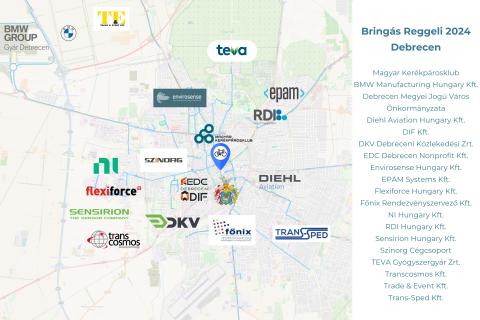
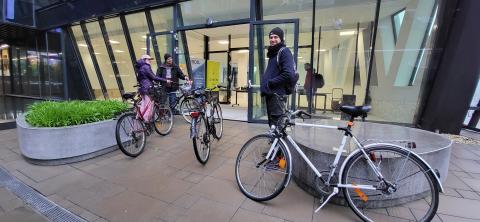
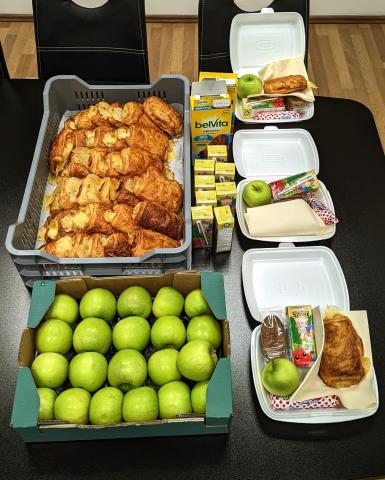
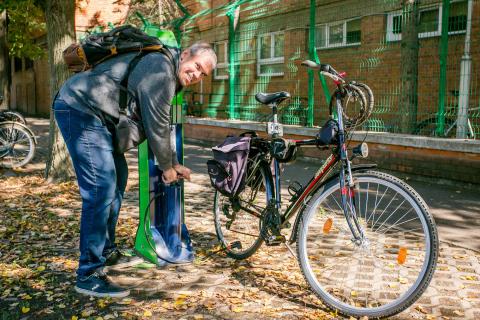
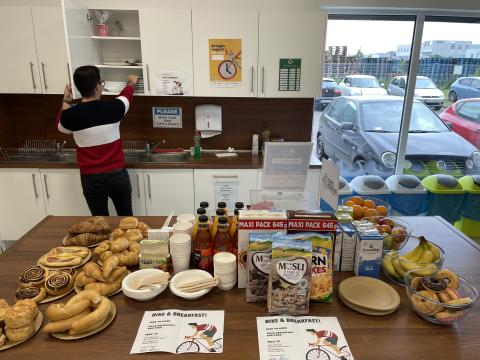
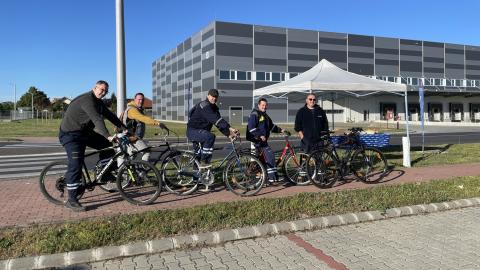
Good practice owner
You can contact the good practice owner below for more detailed information.
EDC Debrecen Urban and Economic Development Center

